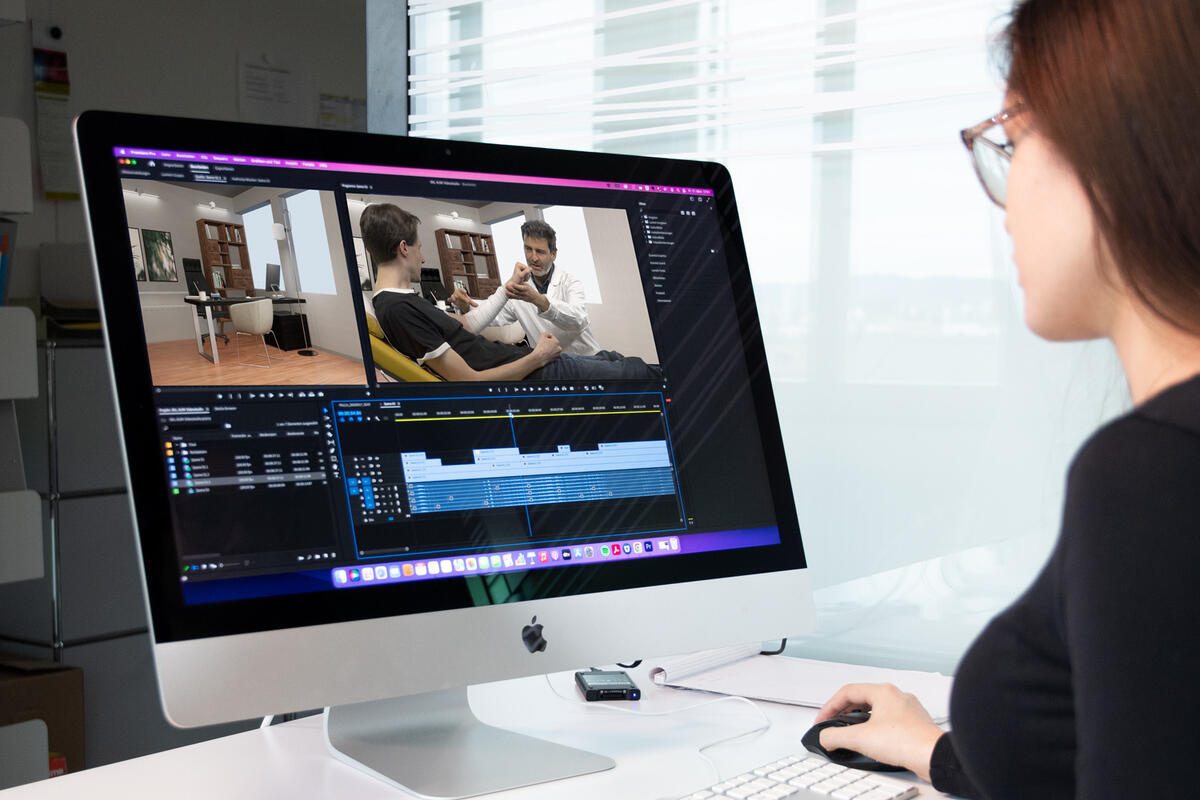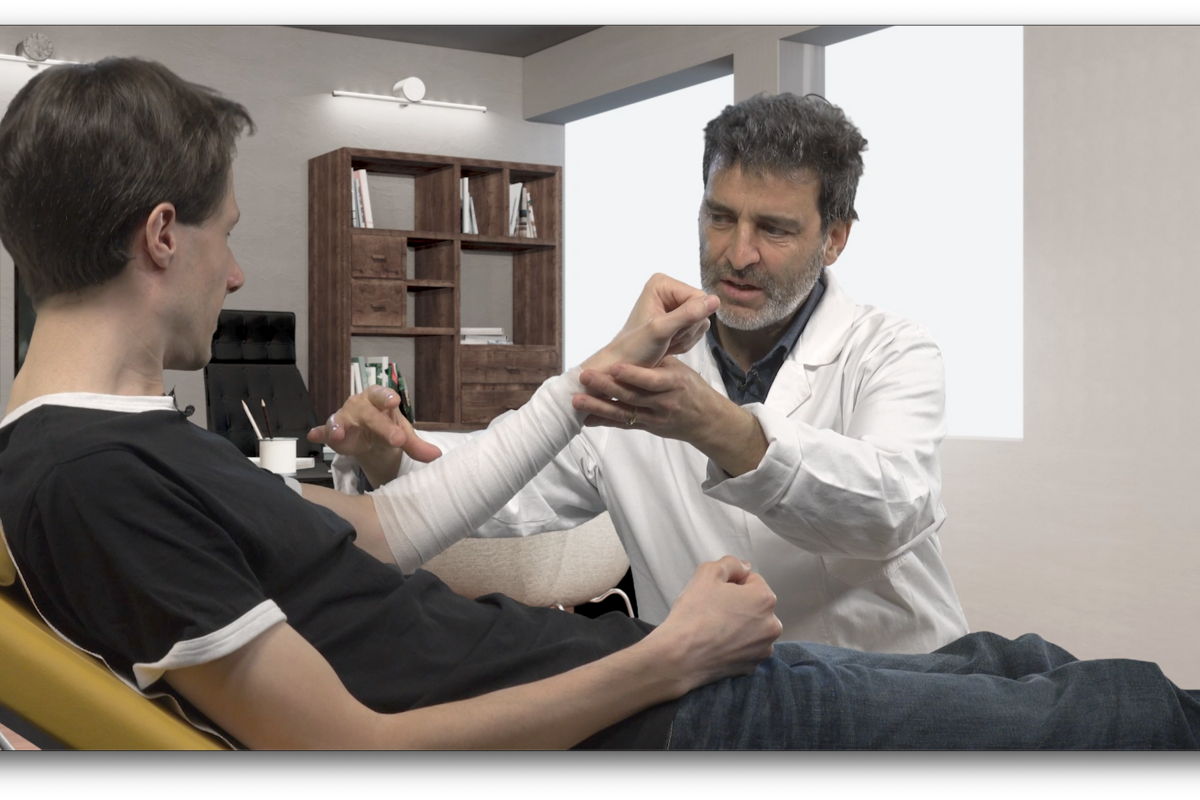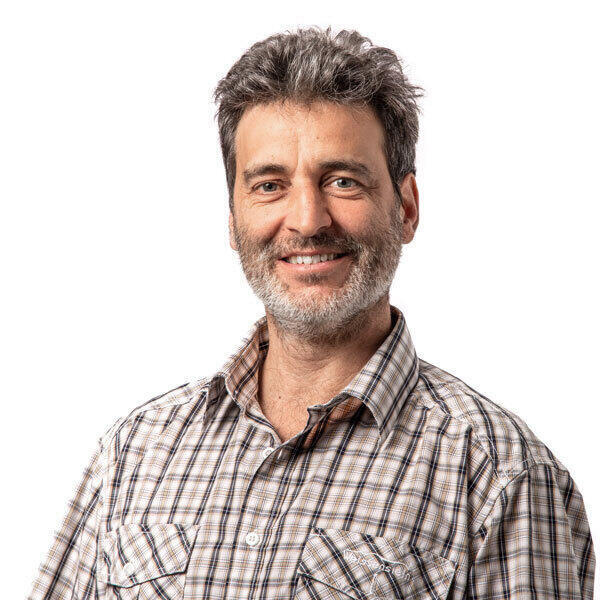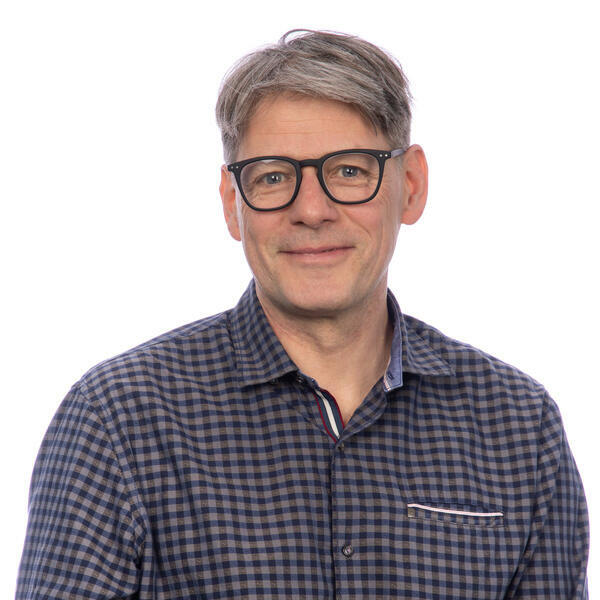In the department for education and media, the learners support us in testing new digital developments. The requirement for the final project is to use a technology that we do not yet know or know little about. In the following, we present the work of Emelie Aebischer, which was completed in June 2022. We show how both the students and the institute benefit from it.
»Unreal Game-Engine in Studio Use": Initial Situation and Solution Approach
Shooting can be done efficiently and professionally in a well-equipped studio. Shooting in the studio usually saves costs compared to shooting on location. Nevertheless, the videos should show the action in the desired environment as much as possible, for example in a doctor's office or in a hospital. The film industry solves this problem with the green screen process: A uniform green background is made digitally transparent and replaced by a suitable background shot. This is done either with specialised cameras or with a digital "paint box". These backgrounds can be easily adapted, e.g. to the light, changed scripts or forgotten details during shooting. Software can arrange backgrounds, adjust lighting as desired and implement changes immediately. A so-called game engine can do all this.
Added value of such platform
Game engines currently form an important component of technological progress and meet the needs of the entertainment industry. They are already used in the development of video games and also in elaborate high-end Hollywood productions. In addition, they will be an essential tool for the diverse tasks of the metaverse. The "Unreal Engine 5" currently offers a proven and at the same time highly innovative platform for the creation of photorealistic 3D worlds in real time.
Digital treatment room - how does it work?
Our mediamatics apprentice has been working on this new area together with her supervisors Adrian Michel and Michael Fluri. First, she installed and tested the preliminary version of the Unreal Engine 5. She was able to take 3D elements from an earlier project, add new ones and use them to create a realistic treatment room. The learner then lit the room and created suitable background shots for our three studio cameras. With the help of our second learner, Mortaza Shahed, the green screen setup was optimised and test shots were taken. The tested setup allows clients to preview the final result and make interactive adjustments. She planned all the steps herself and carried out the necessary work independently. For an IPA, this was an exceptionally big challenge. See demo video
Learners are ideal technology pioneers: motivated, unbiased, persistent
The goals for the work are defined together. In our experience, learners are unbiased and persistent. They are willing to explore alternative paths and are not afraid of reaching a dead end according to the trial-and-error principle. With this approach, they learn. They are motivated to continue and do not give up. There are no financial risks for the learners.
Now it could all be done digitally and independently of external influences. This way, we would be faster and more flexible without having to compromise on quality.
Benefits for the teaching company
In contrast, the teaching company benefits from the experience gained and can build on it.
In the context of IPA, the subject supervisors deal with technologies whose potential they recognise but cannot try out in ongoing projects for economic reasons. Their task is to design an IPA project in such a way that the learners do not fail in it. It is important to keep a balance between requirements and skills. The learners are given a real challenge but not too much. At the end, they should be able to be proud of their work and defend it with motivation in front of the external experts at the examination.
The apprentices have explored new terrain for themselves as well as for the training company, with great benefits for both sides. The training company thus keeps its finger on the pulse of constant technological change and can test what new technologies can do at low cost. In this specific case, the Unreal application enables the creation of recordings that were previously only possible on site in a GP's practice and required time-consuming preparations. The trainer for the apprentices, Adrian Michel, puts it in a nutshell: «We have no choice. In the future, ˂real˃ recordings will be able to be made digitally and independent of external influences. This way we are clearly faster (e.g. emergency bunks), and can produce more flexibly without having to compromise on quality.»




